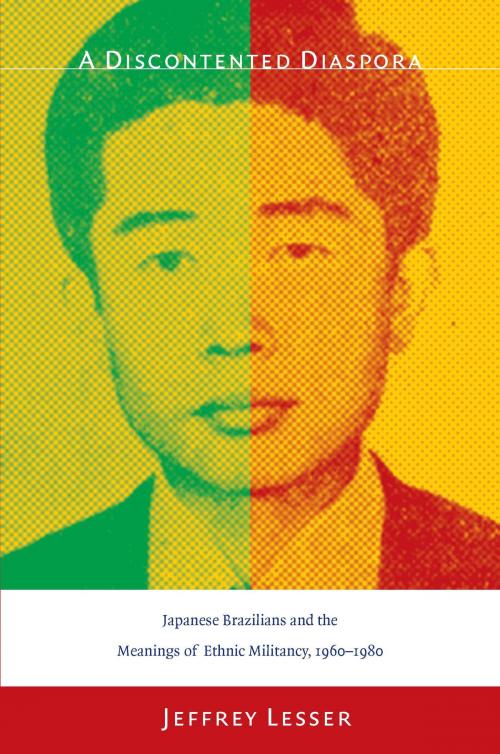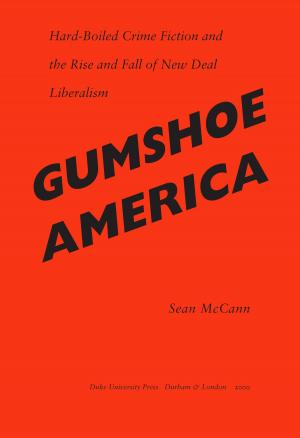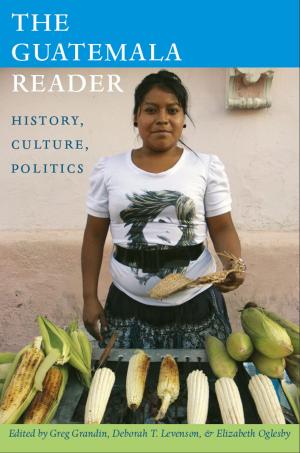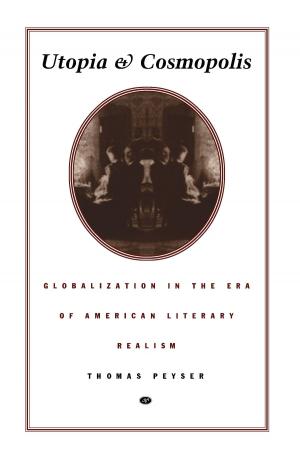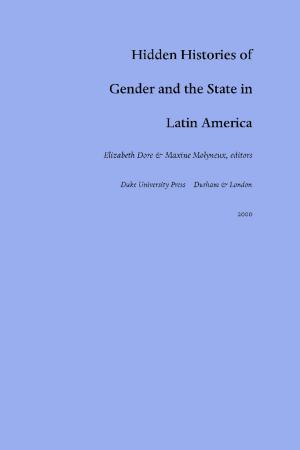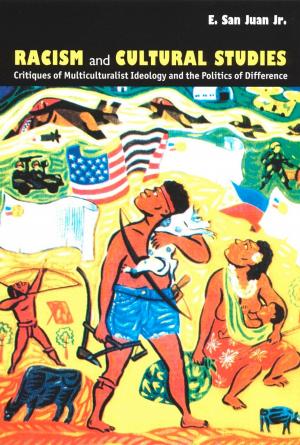A Discontented Diaspora
Japanese Brazilians and the Meanings of Ethnic Militancy, 1960–1980
Nonfiction, History, Americas, South America| Author: | Jeffrey Lesser | ISBN: | 9780822390480 |
| Publisher: | Duke University Press | Publication: | September 14, 2007 |
| Imprint: | Duke University Press Books | Language: | English |
| Author: | Jeffrey Lesser |
| ISBN: | 9780822390480 |
| Publisher: | Duke University Press |
| Publication: | September 14, 2007 |
| Imprint: | Duke University Press Books |
| Language: | English |
In A Discontented Diaspora, Jeffrey Lesser investigates broad questions of ethnicity, the nature of diasporic identity, and Brazilian culture. He does so by exploring particular experiences of young Japanese Brazilians who came of age in São Paulo during the 1960s and 1970s, an intensely authoritarian period of military rule. The most populous city in Brazil, São Paulo was also the world’s largest “Japanese” city outside of Japan by 1960. Believing that their own regional identity should be the national one, residents of São Paulo constantly discussed the relationship between Brazilianness and Japaneseness. As second-generation Nikkei (Brazilians of Japanese descent) moved from the agricultural countryside of their immigrant parents into various urban professions, they became the “best Brazilians” in terms of their ability to modernize the country and the “worst Brazilians” because they were believed to be the least likely to fulfill the cultural dream of whitening. Lesser analyzes how Nikkei both resisted and conformed to others’ perceptions of their identity as they struggled to define and claim their own ethnicity within São Paulo during the military dictatorship.
Lesser draws on a wide range of sources, including films, oral histories, wanted posters, advertisements, newspapers, photographs, police reports, government records, and diplomatic correspondence. He focuses on two particular cultural arenas—erotic cinema and political militancy—which highlight the ways that Japanese Brazilians imagined themselves to be Brazilian. As he explains, young Nikkei were sure that their participation in these two realms would be recognized for its Brazilianness. They were mistaken. Whether joining banned political movements, training as guerrilla fighters, or acting in erotic films, the subjects of A Discontented Diaspora militantly asserted their Brazilianness only to find that doing so reinforced their minority status.
In A Discontented Diaspora, Jeffrey Lesser investigates broad questions of ethnicity, the nature of diasporic identity, and Brazilian culture. He does so by exploring particular experiences of young Japanese Brazilians who came of age in São Paulo during the 1960s and 1970s, an intensely authoritarian period of military rule. The most populous city in Brazil, São Paulo was also the world’s largest “Japanese” city outside of Japan by 1960. Believing that their own regional identity should be the national one, residents of São Paulo constantly discussed the relationship between Brazilianness and Japaneseness. As second-generation Nikkei (Brazilians of Japanese descent) moved from the agricultural countryside of their immigrant parents into various urban professions, they became the “best Brazilians” in terms of their ability to modernize the country and the “worst Brazilians” because they were believed to be the least likely to fulfill the cultural dream of whitening. Lesser analyzes how Nikkei both resisted and conformed to others’ perceptions of their identity as they struggled to define and claim their own ethnicity within São Paulo during the military dictatorship.
Lesser draws on a wide range of sources, including films, oral histories, wanted posters, advertisements, newspapers, photographs, police reports, government records, and diplomatic correspondence. He focuses on two particular cultural arenas—erotic cinema and political militancy—which highlight the ways that Japanese Brazilians imagined themselves to be Brazilian. As he explains, young Nikkei were sure that their participation in these two realms would be recognized for its Brazilianness. They were mistaken. Whether joining banned political movements, training as guerrilla fighters, or acting in erotic films, the subjects of A Discontented Diaspora militantly asserted their Brazilianness only to find that doing so reinforced their minority status.
